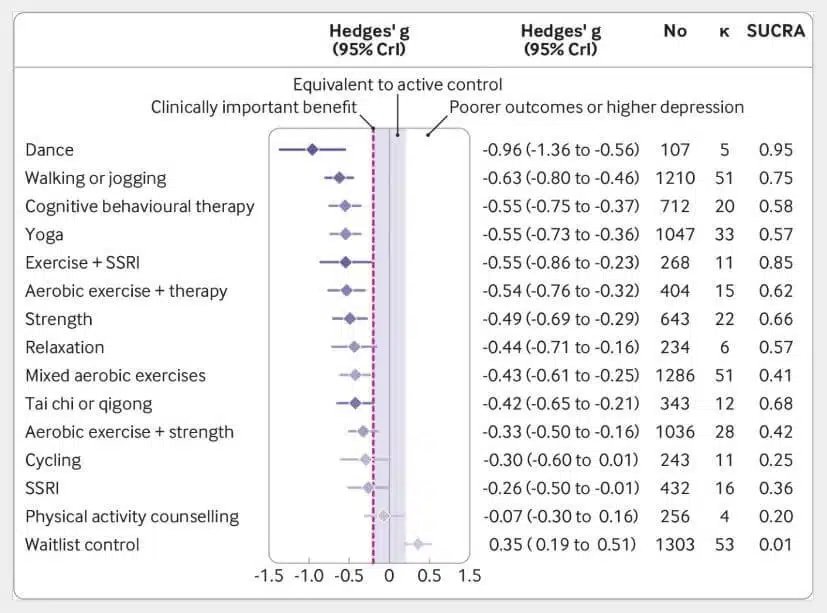How Pain and Depression Are Connected: Insights from a 14-Year Study of 430,000+ People
A large study links pain in multiple body areas to much higher depression risk. Learn how inflammation and lifestyle matter.
JournalSpeak: How Writing Can Reduce Your Physical Pain
How JournalSpeak can uncover hidden stress and chronic pain triggers through expressive writing for emotional freedom and better health.
Exploring IFS with Dr. Schwartz & Dr. Huberman
How Managers, Firefighters, and Exiles work together to shape your mind and behaviors - and how to work with them. A review of the Huberman Lab podcast featuring IFS founder Dr. Schwartz.
Is Alzheimer’s Just Type 3 Diabetes?
Explore how brain insulin resistance may underlie Alzheimer’s, linking metabolic dysfunction to cognitive decline.
Microdosing GLP-1s: Reduce Inflammation, Support Cognitive Health
Discover the potential of microdosing GLP-1 for weight loss, inflammation, cognitive health, and more.
What is Vagus Nerve Stimulation?
How vagus nerve stimulation (VNS) offers relief for conditions like depression, chronic pain, and inflammation with fewer side effects.
Dancing is 4X More Effective Than SSRIs for Depression
According to research, dance and other forms of exercise are more effective than medications like SSRIs in reducing depression symptoms.
GLP-1 Therapies Show Promise for Alzheimer’s Prevention
GLP-1 receptor agonists show promise in Alzheimer’s disease prevention, offering benefits beyond weight loss and diabetes management.
Dr. Weiner’s Insights from A4M’s Longevity Conference 2024
Explore top insights from A4M’s Longevity Conference, including neurotransmitter health, vagus nerve stimulation, GLP-1 therapy, and cellular longevity.
Can a Two-Week Social Media Detox Improve Health and Happiness? (Research Review)
Research review: how a two-week social media detox can reduce stress, improve sleep, and foster healthier habits.
New Research Shows How the Body Truly Keeps the Score: Cells Outside the Brain Keep Memories
New research shows that memory extends beyond the brain—non-neural cells can also store experiences, backing holistic health insights.
Why Emotional Regulation is the Most Important Skill to Teach Anyone Who is Suffering from Mental Health Challenges (Guest Post)
Neuropain Health Coach and Strategy Director Julia Mirer, MD reviews why emotional regulation is the single most important tool to learn as adults (or to teach children) in order to address/prevent mental health challenges and improve one's quality of life.
Podcast: Comprehensive Pain Management and Alternative Therapies with Katie Walker and Adam Marr
Recently, I joined Adam Marr and Katie Walker on the Revitalist Clinic Podcast to discuss some of the most exciting developments in pain management. Our conversation explored the roles of ketamine and alternative, holistic therapies in transforming the landscape of treatment for chronic pain and PTSD.
Chronic Pain is More Common Than Diabetes or Depression: A Call for a Bio-Psycho-Social Approach
1 in 5 Americans experience chronic pain, which now exceeds the prevalence of diabetes and depression. Dr Weiner explores how a bio-psycho-social approach offers a more effective strategy for managing this pervasive issue.
Ketamine for Fibromyalgia and Chronic Pain Management - a Systematic Review
Fibromyalgia affects millions worldwide, causing widespread body pain, fatigue, sleep disturbances, cognitive issues, and mood changes. Despite its prevalence, treatment options remain limited.
Recent research finds promising results in using ketamine for short-term fibromyalgia relief, and case studies show potential for long-term relief for some patients with chronic pain, too.
Glutamate’s Role in Depression
Given the recent debunking of the serotonin theory of depression, Dr. Weiner explores glutamate’s role in depression and neuroplasticity, exploring how glutamate's complex signaling mechanisms contribute to mood regulation and mental health, offering new perspectives for effective treatments.
Matthew Perry’s Ketamine Case: What Went Wrong
The tragic passing of Matthew Perry highlights critical missteps in the administration of ketamine, underscoring the necessity for stringent ethical standards and proper patient care in medical practice. This analysis breaks down the key areas where Perry's treatment deviated from acceptable medical practices.
Research Review: Cannabidiol's Potential in Reversing Fentanyl Addiction and Reducing Neuroinflammation
Dr. Weiner reviews a recently published study on the potential of Cannabidiol (CBD) in treating fentanyl addiction. CBD's anti-inflammatory properties could revolutionize addiction therapy by providing a safe and effective treatment alternative that mitigates neuroinflammatory responses, offering hope in the battle against the opioid crisis.
Research Review: Ketamine vs ECT for Treatment-Resistant Depression: New Insights from the ELEKT-D Trial
Dr. Weiner explores a recently published secondary analysis of a trial that compared ketamine to electroconvulsive therapy (ECT) for treatment-resistant depression, finding that ECT and ketam!ne both effective long-term, with moderate to severe depression patients having faster improvement with ketamine, and very severe depression responding faster to ECT.
The Surge of Microdosing: Rising Search Term Popularity and Legislative Impacts
The practice of microdosing psychedelics has seen a staggering increase in popularity. A comprehensive study (published June 28, 2024) reveals a 1250% surge in public interest over the past eight years, coinciding with significant legislative changes across the United States.




















